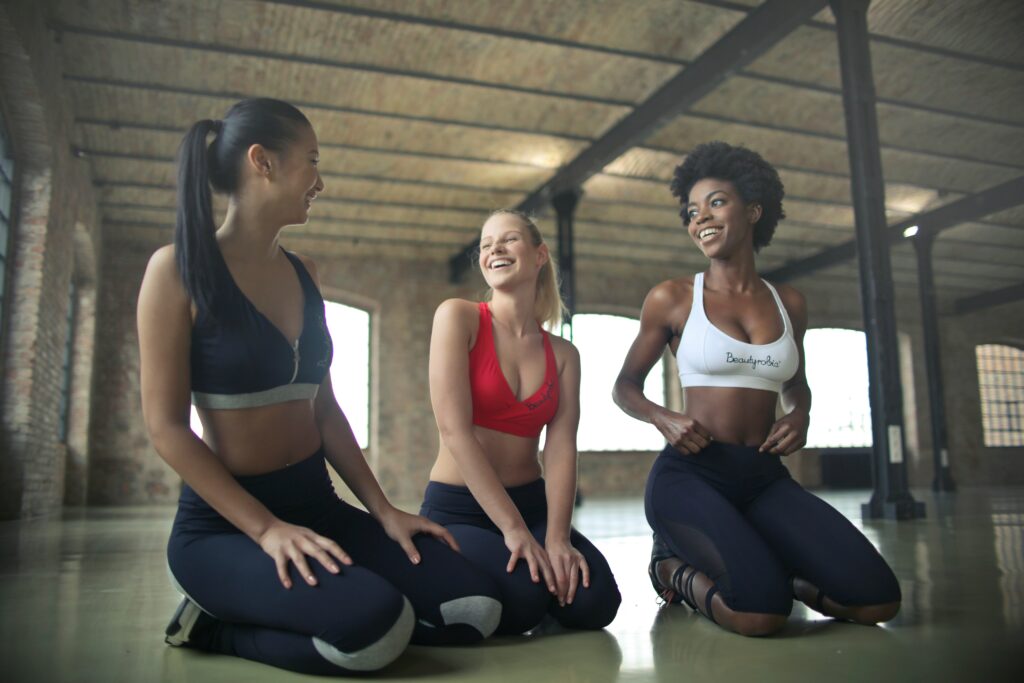Health is our foundation : Earth
Picture by Aleks Dahlberg
Earth Element
Just as a house needs strong foundations to withstand the elements, our bodies need to be strong to resist illness, injuries, and the increasingly harsh conditions of our environment due to ecological decline.
This highlights why it is crucial to maintain health; without a healthy body, we won’t be able to achieve our goals effectively.
Please take a look at the practical section for more contents and tools!
I’ve spent half my life in gyms, if not more, and I love physical fitness and health; couple that with the fact that I love for people to be healthy, whether it’s mentally, physically, or emotionally, and it’s just a great opportunity for me to do something I love and have an impact on people’s health.
—Steve Nash
Relations to the Key Principles

Maximizing Fitness: Train Smart, Recover Right, and Stay Focused
As we recognize that our time is limited, we want to make the time we spend count as much as possible. This applies to fitness as well. The more efficient our training sessions, the less time we actually spend training, and the better the results—truly a win-win opportunity.
The first thing to remember is that our muscles and body need time for recovery. Most of us aren’t aiming to become professional athletes who need to train specific areas daily, so it’s important to alternate between cardio and resistance training.
To make training sessions more efficient, it’s crucial to stay focused and avoid distractions, such as our phones or social media, during the session.
Personal Advice
I incorporate a 15-minute light exercise session into my morning routine, which includes stretching, push-ups, sit-ups, planks, squats, and jumps.
I run on Mondays, Wednesdays, and Fridays for about an hour, depending on the day’s plan (I follow a program that mixes easy runs with interval training).
On Tuesdays and Thursdays, I go bouldering for about 1.5 to 2 hours.
Depending on my mood, I either swim for an hour or play badminton or table tennis for 1.5 hours on Saturdays.
Sunday is a rest day from working out.
Picture by Alora Griffiths
The Importance of Balance in Exercise: Avoiding Injuries While Making Progress
When it comes to fitness, finding the right balance between exertion and recovery is essential. Exercising too much can lead to overtraining, which increases the risk of injuries, while too little exercise may prevent noticeable progress. To achieve long-term success, we must adopt a balanced approach that considers both intensity and recovery.
Overtraining occurs when the body is pushed beyond its ability to recover. This can result in fatigue, muscle strain, or more serious injuries such as tendonitis or stress fractures. Consistently neglecting rest days or not allowing muscles enough time to recover can lead to burnout, which not only hinders physical progress but can also diminish motivation and enthusiasm for fitness. In this context, less is often more, as rest is just as crucial as training for overall improvement.
On the other hand, insufficient exercise, or failing to challenge the body, can result in stagnation. Progress requires the body to be pushed out of its comfort zone, allowing for muscular and cardiovascular adaptations. Without consistent effort, strength and endurance gains may plateau, reducing the effectiveness of any fitness routine.
The key to balancing exercise lies in listening to your body. By alternating between high-intensity workouts and rest or light activity days, you create an optimal environment for muscle recovery and growth. Balance ensures that you stay injury-free while consistently making progress toward your fitness goals, fostering both physical health and long-term sustainability.
Picture by Jon Flobrant


The Impact of Fitness on the Brain and Its Benefits for Life
Maintaining a good fitness regime is not only essential for physical health but also plays a crucial role in enhancing brain function. Regular exercise has been shown to improve cognitive abilities, mental clarity, and emotional well-being. By promoting neuroplasticity—the brain’s ability to form new connections—fitness supports learning and memory retention, making it easier to acquire new skills and absorb information.
Exercise boosts the release of neurotransmitters like dopamine and serotonin, which are responsible for improving mood and reducing stress and anxiety. This creates a positive feedback loop, where regular physical activity helps to regulate emotions and reduce mental fatigue, allowing individuals to approach challenges with greater focus and resilience. These mental benefits extend beyond the workout itself, influencing other aspects of life, such as work or academic performance.
A good fitness routine also enhances social relationships. Physical activities, especially those done in groups like sports or fitness classes, provide opportunities for social interaction, helping to build connections with others. Moreover, regular exercise boosts self-confidence, which can improve communication skills and make socializing more enjoyable.
Additionally, the discipline and consistency developed through maintaining a fitness regime can carry over into other areas of life. Regular exercise cultivates habits of perseverance and time management, which are vital for personal and professional growth. Overall, fitness contributes to a healthier brain, leading to enhanced learning, improved social interactions, and greater success in both personal and professional endeavors.
Picture by Bruce Mars